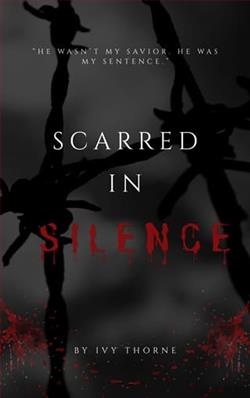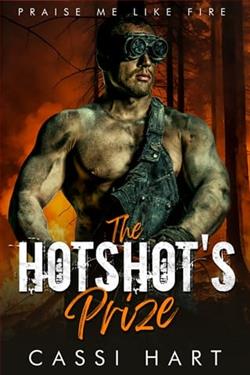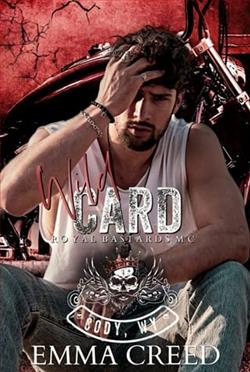Page 3 of The Children of Eve
Reluctantly, he exited the car and watched as his wife crossed the road and peered into the gloom.
“Hello?” she called. “Honey, are you okay?”
But there was no reply and no movement.
“I don’t want to say you imagined it—” her husband began.
“Then don’t.”
He closed his mouth, keeping any swearing to himself. Black Point Road was empty, with no other cars visible. Houses stood some way ahead and behind, but here it was marsh on both sides. He joined her as she moved onto the grass and was alert enough to spot the depression she failed to notice, so fixed was her gaze on the landscape beyond, or what little of it could be discerned in the fog.
“Careful!”
He grabbed her by the arm just as she began to slip, and the two of them nearly ended up on the ground. She stepped back onto the road. Behind them, the car beeped a warning about the open door on the driver’s side. If another vehicle did come along, it might well take off the door as it passed, and he’d be the one nominated to explain the damage to the insurance company. He recrossed and pushed the doormostly closed, but didn’t let it click. He’d once managed to lock a rental car with the motor running and the keys still inside—don’t ask—and his wife had never let him forget it, just as she’d never let him forget the time he went swimming with the keys of another rental car tied to the string on his swim shorts, which hadn’t ended well either. Add to that the occasion on which he’d lost the key of their own car while walking the dog, and you had an explanation for why the key was now kept on a lanyard, which he was under orders to wear around his neck if it wasn’t actually in the ignition.
When he looked back, she was using the flashlight on her cell phone to search the marsh, but she might as well have struck a match for all the good it was doing in the fog.
“Hello?” she said again, but he could hear from her tone that she was beginning to doubt herself. He was sure, or pretty sure, that she’d briefly nodded off—one of those microsleeps drivers were constantly being warned about—and the child was part of a dream. He went forprettysure because, well, there were stories, incidents, call them what you will, about the area between Route 1 and Prouts Neck, many of them involving a child, or a child and her mother: glimpses, flashes, but no more. He generally ascribed them to Mainers wanting to put the frighteners on flatlanders like him and his wife. They and their three kids had been living in Scarborough for nine years, ever since the bank had offered her a promotion if she moved to Maine from Boston. They’d done their best to involve themselves in the life of the community, but rarely did a week go by without some old fart reminding them of their roots elsewhere or asking them how they were “settling in,” when their eldest daughter had already made it through middle and high school and was now studying at Bowdoin. Those coots could take a running jump with their stories as far as he was concerned, but there were others, men whom he trusted not to bullshit him, who’d mentioned catching sight of figures on Ferry Beach or Western Beach when the night was clear. A woman and a child, seen and then gone.
His wife stared at him, and he knew from experience born of twenty-two years of marriage that she was thinking the same thing.
“Let her go,” he said softly.
She killed the flashlight on her phone and put it away. Her husband thought she might be close to tears, so he hugged her.
“I wonder who she is,” she said. “I wonder why she stays here.”
“I guess she must have her reasons.”
“I guess she must.”
They got back in the car and went on with their journey. Neither glanced at the driveway they passed on the left or the silhouette of the house barely visible at its end, a single lamp burning in one of its windows, and only when they were safely departed did the ghost of a child continue walking in the direction of the light.
CHAPTERIII
In Santa Ana Tlachiahualpa, far from snow and marshes, Antonio Elizalde’s life, like all lives, moved inexorably toward its close. Had a clock been ticking off the seconds of his existence, he might have noticed the sudden acceleration of its cadence; without such a clock, he was conscious only of a sense of danger. He hadn’t let the gun drop, keeping it at waist height and directed at Seeley. Now he raised it higher, and the little man put up his hands in mock surrender.
“Don’t shoot,” said Seeley, his smile never wavering, broadening even, as though Elizalde’s threat was a welcome move in the game, an indication of his willingness to play. “Me good Indian.”
Seeley wiggled his fingers, then raised his elbows to let his hands drop down, like a marionette operated by secret strings, and shook his sleeves.
“I’m not armed, beyond what’s in here”—Seeley tapped a forefinger to his left temple—“so don’t go testing out your popgun on me, not until you hear all I have to say. You don’t want to shoot an unarmed man. That brings with it all kinds of legal complications.”
“An unarmedintruder,” Elizalde corrected. “That brings fewer complications, especially down here.”
Seeley conceded the point with a dip of his chin and resumed his former posture, his hands once more clasped in his lap.
“I hear you’re ailing,” he said. “Lung cancer, right? That’s a bad card to turn, but you can’t say you weren’t warned. I mean, I’ve seen the pictures on your Mexican cigarette packs, all those diseased lungs and women with one titty. I even saw a pack of Luckies with a dead baby lying on a bed of butts. That would surely make me think again—though you’re a Marlboro man, right? Bob Norris, that was the name of the guy who played the cowboy in those TV commercials. You know, he never smoked a cigarette in his life? Didn’t let his kids smoke either. Most of the rest of them Marlboro cowboys, they picked up cancers, or emphysema, but not old Bob. He just cashed the checks and tried not to think about Philip Morris’s name at the bottom. You got health insurance?”
“Yes, I have insurance,” said Elizalde.
“You’re a wise man. You never know what’s going to come around the corner and hit you right in the kisser—or in your case, in the lower left lung. Typical carcinoid tumor is what they tell me, which means it’s slow, and slow is good. Once they catch it early enough, a man might live to fight another day. Expensive business, though, getting rid of it. You got your wedge resection—that’s what’s on your slate for the week to come, according to the surgical notes—and then chemo or radiation, maybe both. If you don’t have good insurance, it all adds up, unless you’re lucky enough to win the public care lottery, and who wants to play those odds, right?
“Except your insurance isn’t so good, Mr. Elizalde. Your insurance will barely get you in the hospital door. Fortunately, you also have a nest egg, thanks to all those treasures you’ve sourced for your customers down the years. They ask and you provide, given enough notice, so you’re not just relying on the local boys to strike it lucky on an illegal dig. In a way, you’re like one of those spiders there, building a web and sitting at its heart, but instead of hunting for delicacies you tap a thread and someone brings the spoils right to you: from a museum, a private collection, an official site. You know all the people that matter, and they know you.
“And because you’re very quiet and listen hard, you have an awareness of plunder that few others possess, information to be filed away for when the right client comes calling with the correct sum in mind. But you’re cautious into the bargain. You wouldn’t have survived so long, in life as in trade, if you weren’t. Only you stopped being careful because of the cancer. You gambled, because you had nothing to lose but a disease-riddled mess of days. In this matter, sir, you could say that I represent the house, and I’m here to give you the bad news: your gamble didn’t pay off, and now it’s a matter of how you choose to settle the debt.”
Elizalde didn’t bother with bluff or denial. The fact that Seeley was here made both redundant.















